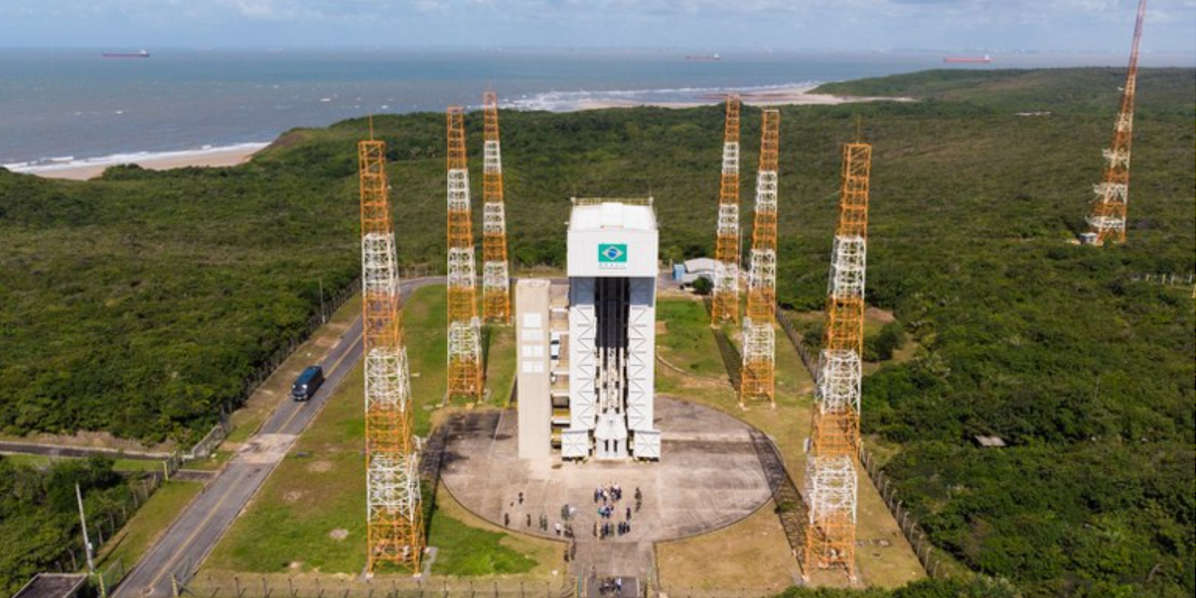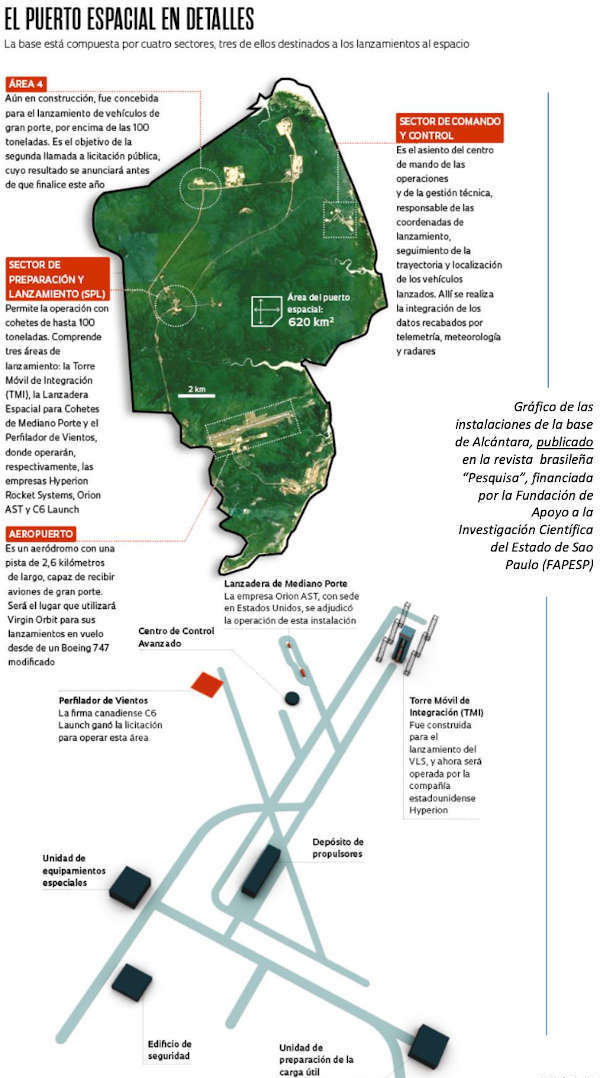In the picture
Alcântara Launching Base [Brazilian Space Agency].
report AMERICAN REGIONAL SECURITY, SRA 2023 /PDF version from article
° Activity is accelerating: in 2023 Virgin Orbit and South Korea's Innospace expect to launch the first suborbital flights or into Earth orbit at leave .
° In October 2022, the first rocket manufactured with 100% Brazilian components took off, an exponent of development of the aerospace sector of the largest South American country.
° Four North American companies were selected in 2021 to operate permanently at Alcantara: Virgin Orbit, Hyperion, Orion AST and C6 Launch.
The agreement Technology Safeguards Agreement signed in 2019 by Presidents Jair Bolsonaro and Donald Trump meant the opening of Brazil's Alcantara space center to the global market. The lack of funds for large-scale space launches and ambitious goals for the future of the Brazilian Space Agency prompted the South American country to open its doors to the world, taking advantage of the great growth of the small satellite launch industry and its strategic location with respect to other countries for space activity.
The Alcântara Launch Center (CLA), in Brazil, is located in the Maranhão region, in the northeast of the country. It is a location with access to the sea and only 2.3 Degrees south of the equator. This plays a role core topic in terms of space launches, due to a shorter distance to reach orbit, and less resistance for the trajectory. This allows to increase the weight of the rocket and its own cargo. All this, added to a leave demographic density in the region, absence of earthquakes and hurricanes, and a leave air traffic density, makes Alcantara an attractive base for the space sector and, consequently, a great focus of commercial interests.
The first to enter the scene was the United States, which since 2019 has a great advantage in Alcantara. The treaty signed between the two allows the Brazilian Space Agency to only launch from the base those rockets, satellites or spacecraft that count U.S. technology among their parts. Since April 2021, four North American companies (three U.S. and one Canadian) have been selected to operate at the center. The first selected was Virgin Orbit, which operates from California through a wholly owned Brazilian subsidiary entity, VOBRA, destined to bring the LauncherOne air-launch rocket system to the base. The other companies-Hyperion, Orion AST (which currently has made no progress beyond licence) and Canada's C6 Launch-allhope in 2023 to accelerate and make space launches more accessible, with small satellites destined for suborbital travel (around the Kármán line, 100 kilometers above sea level, and without making a full circle around the Earth). This suborbital travel subject began on October 31, 2022 in Alcantara, the date on which the first rocket manufactured with 100% Brazilian components took off from the CLA.
While it is true that these American companies have taken some steps, the first foreign business to take the initiative on the internship has been the South Korean start-up Innospace, which will be the first private business to launch a rocket from the base. The mission statement known as 'Astrolabio Operation' was set for December 2022, but due to failures in the HANBIT-TLV ignition system it had to be delayed. Finally, and if all goes as planned, it will perform the suborbital journey scheduled for March 7-21, 2023. Innospace emphasized the importance of securing launches to avoid catastrophes such as the one in 2003, in which 21 people lost their lives due to the explosion of a rocket prepared for launch at the Alcantara base.
The next launch in the spotlight is Cosmic Girl from Virgin Orbit's project LauncherOne. This business had failed last January 2023 in its attempt to be the first to successfully achieve an orbital launch from Western Europe (from Spaceport Cornwall in the UK). However, it will try its luck again from the Alcantara base this 2023, with a launch to leave Earth orbit, a follow-on to LauncherOne. In case of success of this mission statement, it would be the first time that orbit is reached from Alcantara, an event that will undoubtedly mark a before and after in the history and influence of Brazil in the space sector.


